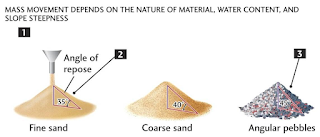1. Formulating the research problem:
There
are two types of research problems, viz., those which relate to states of
nature and those which relate to relationships between variables. At the very
outset the researcher must single out the problem he wants to study, i.e., he
must decide the general area of interest or aspect of a subject-matter that he
would like to inquire into.
Initially the problem may be stated in a broad general way and then the
ambiguities, if any, relating to the problem be resolved. Then, the feasibility
of a particular solution has to be considered before a working formulation of
the problem can be set up. The formulation of a general topic into a specific
research problem, thus, constitutes the first step in a scientific enquiry.
Essentially two steps are involved in formulating the research problem, viz.,
understanding the problem thoroughly, and rephrasing the same into meaningful
terms from an analytical point of view. The best way of understanding the
problem is to discuss it with one’s own colleagues or with those having some
expertise in the matter.
In an
academic institution the researcher can seek the help from a guide who is
usually an experienced man and has several research problems in mind. Often,
the guide puts forth the problem in general terms and it is up to the
researcher to narrow it down and phrase the problem in operational terms.
In
private business units or in governmental organizations, the problem is usually
earmarked by the administrative agencies with which the researcher can discuss
as to how the problem originally came about and what considerations are
involved in its possible solutions.
The
researcher must at the same time examine all available literature to get
himself acquainted with the selected problem. He may review two types of
literature—the conceptual literature concerning the concepts and theories, and
the empirical literature consisting of studies made earlier which are similar
to the one proposed.
The
basic outcome of this review will be the knowledge as to what data and other
materials are available for operational purposes which will enable the
researcher to specify his own research problem in a meaningful context.
After
this the researcher rephrases the problem into analytical or operational terms
i.e., to put the problem in as specific terms as possible. This task of
formulating, or defining, a research problem is a step of greatest importance
in the entire research process.
The problem to be investigated must be defined
unambiguously for that will help discriminating relevant data from irrelevant
ones. Care must; however, be taken to verify the objectivity and validity of
the background facts concerning the problem..jpg)



Comments
Post a Comment